Are you thinking of transitioning to Salesforce for your customer relationship management requirements? If cloud migration services are on your mind, here is everything you need to know before taking the first step toward cloud migration.
Salesforce is a widely used CRM platform that provides a comprehensive growth solution for businesses. Allowing customers to develop their own applications and effectively market their products as a cloud computing Software-as-a-Service (SaaS) provider, Salesforce helps organizations enhance their efficiency and establish better connections with their customers. Choosing Salesforce for your organization puts you in good company as major companies like Google, Amazon, and Facebook also utilize Salesforce in various capacities.
To help with your decision-making process, we are highlighting a major benefit of Salesforce – its ability to allow organizations to access a wide range of industry offerings through a unified cloud-based platform. This enables you to integrate process automation into your operations, resulting in seamless and convenient workflows.
Another major draw of Salesforce is its specialization in different industries. For example, the Financial Services Cloud is further divided into sub-verticals like wealth management, commercial banking, retail banking, and insurance. Salesforce also provides industry-specific processes and data models, which enhance the capabilities of Artificial Intelligence and analytics.
So, let’s explore the various types of Salesforce Clouds that manage your company’s sales, marketing, and customer relationships.
Salesforce Cloud Types
Salesforce initially gained popularity as a CRM and sales automation platform, pioneering the concept of cloud-based CRM. Today, Salesforce remains a dominant force in the market by embracing new technologies and anticipating future trends. They have developed the Customer Success Platform, a cloud service ready for production.
Salesforce Sales Cloud
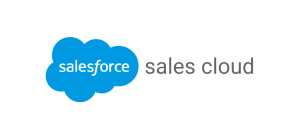
Streamlining the sales process and facilitating customer coordination across multiple channels, Salesforce Sales Cloud is designed to generate leads and boost sales for both B2B and B2C businesses. It provides well-structured processes and a unified platform for managing customer information and communication through various channels. It allows companies to customize the platform according to their specific needs and access real-time and accumulated data in one place. So, if your business struggles with disorganized customer data or has difficulty leveraging it for tracking and decision-making, Sales Cloud can be a game-changer!
Read more: 10 tips to close deals quicker with Salesforce CPQ! (suyati.com)
Salesforce Marketing Cloud
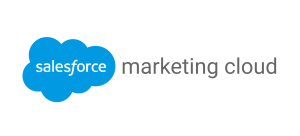
A popular marketing automation platform offered by Salesforce, Marketing Cloud allows you to engage with customers in real time, automate your email, marketing, and social media channels, and utilize SMS and push notifications to enhance customer journeys. The platform includes powerful analytics capabilities to automate personalized journeys across multiple channels.
With Marketing Cloud, your team can track customer interactions and progress throughout their journeys. Marketing Cloud also aids in creating cross-channel journeys and improving post-purchase communication, including tracking shipments and order fulfillment. The platform incorporates the Einstein tool, which enables personalized communication and leverages Artificial Intelligence.
One of Marketing Cloud’s valuable features is Journey Builder, which allows you to visualize customer journeys, identify crucial touchpoints, and gather data to create high-performing marketing campaigns. This journey visualization tool helps personalize your campaigns. So, if you are on the lookout for superb marketing campaign performance, the Marketing Cloud could be your best bet!
Salesforce Commerce Cloud
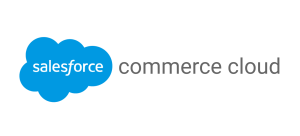
An advanced e-commerce platform that has evolved to meet the changing demands of the industry, Salesforce Commerce Cloud revolutionized e-commerce by offering it as a Software-as-a-Service (SaaS) solution and continuously adding new functionalities to stay relevant and flexible. The platform provides comprehensive support for companies seeking cutting-edge and scalable B2C functionality.
Commerce Cloud continues to evolve and update its features, staying at the forefront of e-commerce advancements. For example, it now has integration with Instagram and enhanced connectivity with other Salesforce tools, further empowering businesses in their e-commerce endeavors. Boost your commerce ventures with the seamless and effective Commerce Cloud!
Salesforce Service Cloud
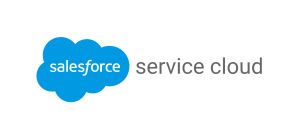
A customer service management platform provided by Salesforce, Service Cloud serves as a help desk and cloud-based customer service solution, enabling companies to resolve cases and deliver personalized customer support. It offers numerous benefits through its scalable and high-functioning SaaS model. These benefits include improved customer satisfaction scores, live agent support, social media support, reduced service maintenance costs, and increased agent productivity.
Einstein Reply Recommendations feature in this cloud uses natural language processing and AI to suggest replies to agents in real time across chat and messaging platforms. It assists agents by providing recommended responses, improving efficiency and customer interactions. Service Cloud also provides a multifunctional dashboard to track customer interactions and help sales agents understand the complete context of each case. Service Cloud Voice integrates telephony into the platform, allowing phone conversations and notes to be recorded within the system. Service Cloud offers custom reports and dashboards that provide a 360-degree view of customers, including their orders, customer support history, and overall activity. Now you know what you need to make your services outstanding!
Salesforce Experience Cloud
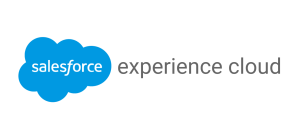
Previously known as the Salesforce Community Cloud, the Salesforce Experience Cloud is a social platform that connects customers, employees, partners, and agents in a collaborative online community. It leverages data from the CRM system to facilitate seamless communication and enhance customer service. Experience Cloud serves as an extension of the Salesforce Sales Cloud Instance, providing valuable use cases for partners, investors, and customers.
Experience Cloud can be utilized by HR teams and IT help desks to efficiently handle employee inquiries and provide support. Partners and investors can connect with the company using Experience Cloud, fostering collaboration and strengthening relationships. Experience Cloud allows customers to send and receive data in real time, making it a versatile platform that serves as a help forum and support site. Customers can connect with the backend team and complete tasks with personalized assistance. This robust cloud-based tool also meets e-commerce needs and offers seamless purchasing functionality. When combined with the Digital Storefront, companies can personalize products, and customer journeys, and drive increased profitability. If your business is looking to enhance customer experience and community features, pick Experience Cloud to facilitate the journey!
Einstein Analytics Cloud
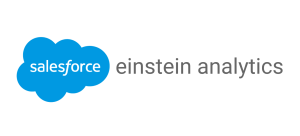
A powerful component of the Salesforce platform, Einstein Analytics Cloud revolutionizes the way businesses analyze and visualize their data. By combining Artificial Intelligence (AI) capabilities with advanced analytics, Einstein Analytics Cloud empowers organizations to gain valuable insights, make data-driven decisions, and drive business growth. It enables users to explore complex data sets effortlessly, providing them with a deeper understanding of their business and customers.
The cloud-based nature of Einstein Analytics allows for seamless integration with Salesforce data and external sources, ensuring a comprehensive view of the organization’s operations. It supports a wide range of data sources, including spreadsheets, databases, social media platforms, and more. With its AI-driven analytics capabilities, interactive dashboards, predictive modeling, and seamless integration with Salesforce CRM, organizations can make smarter decisions, drive innovation, and achieve sustainable business success in today’s data-driven landscape. Now, fulfill all your analytics needs with the Einstein Analytics Cloud!
Summary
In conclusion, Salesforce emerges as a powerful cloud migration and AWS cloud platform that connects customers, employees, partners, and agents in a collaborative and data-driven online community. With its ability to tap into CRM data and facilitate seamless communication, Salesforce revolutionizes customer service and boosts overall efficiency.
By leveraging the features of Salesforce, your business can unlock its full potential by streamlining processes, enhancing collaboration, personalizing customer experiences, and driving increased profitability. With the world quickly turning towards a digital reality, this is the best time for future-ready businesses to adopt cloud migration and enjoy the unique features and optimal cloud security in real time. Now you know the easiest way to find the right Salesforce Cloud and power up your business – just get connected with the right Salesforce consulting partner who can get all of this done for you easily!

